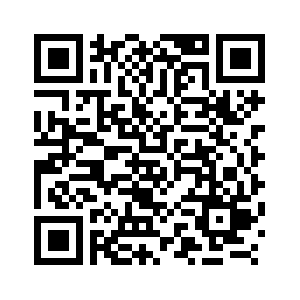KHARTOUM, Feb. 22 (Xinhua) -- At least 83 people have died during the past 72 hours due to a cholera outbreak in Sudan's White Nile State, local non-governmental organizations (NGOs) reported Saturday.
"The spread of cholera in White Nile has caused the deaths of 83 people, while 1,197 others have been infected, of whom 259 had recovered as of yesterday (Friday)," the non-governmental Sudanese Doctors Network said in a statement.
Describing the situation as "catastrophic," the network urged health authorities to open additional centers in response to the overwhelming number of cases, amid a shortage of hospital beds.
The network also called on local authorities to ramp up awareness campaigns, disinfect markets, prevent drinking water distribution through traditional methods, and distribute chlorine in areas lacking water networks.
Meanwhile, the Nidaa Al-Wasat Platform, a local volunteer group, warned that the health situation in Kosti, a major city of White Nile State, "is taking a very dangerous turn," with over 800 cholera cases and dozens of related deaths reported.
In a press release, Doctors Without Borders (MSF), another NGO, also confirmed that "dozens have died, and over 800 with symptoms of acute watery diarrhea, dehydration, vomiting, and sunken eyes are being treated at the cholera treatment center in Kosti Teaching Hospital, which is supported by the MSF."
It noted that the first 100 patients arrived at the treatment center on Wednesday night, and the number exceeded 800 by Friday afternoon.
"The situation is alarming and is about to get out of control," Francis Layoo Ocan, MSF's medical coordinator in Kosti, was quoted in the press release as saying.
"The cholera treatment center keeps receiving patients in critical condition. We've run out of space, and we are now admitting patients in an open area and treating them on the floor because there are not enough beds," he noted.
"We are worried that if the situation continues like this over the next few days, we will run out of medical consumables," he said, adding the medical teams could also be completely overwhelmed.
The MSF appealed for assistance from other organizations to help respond to this emergency, while noting the most likely source of infection is the White Nile River.
On Feb. 16, the state's Um-Dabakir power station was attacked by drones, affecting water stations in major cities nearby and forcing local residents to fetch water from the White Nile River using animal-drawn carts.
Local authorities have taken several measures to counter the cholera outbreak, including banning water collection from the river, instructing the enhancement of chlorination in the water distribution system, and closing markets and most restaurants in the state.
Also on Saturday, Sudan's Health Ministry announced the launch of a cholera vaccination campaign in White Nile, targeting citizens aged one and above in Kosti and Rabak cities.
According to the ministry, cholera infection cases in the country since last summer have reached 53,735, with 1,430 deaths reported.
White Nile has been witnessing increasing attacks by the paramilitary Rapid Support Forces (RSF), with the latest notable one being on the villages around the state's al-Gitaina area that killed 433 civilians, as reported by the government on Feb. 18.
The RSF has been at war with the Sudanese Armed Forces for nearly two years, resulting in significant casualties, massive infrastructure destruction, and the displacement of millions. ■



